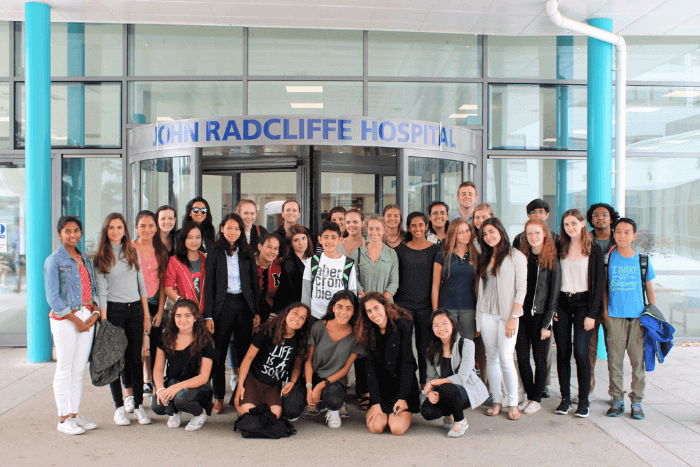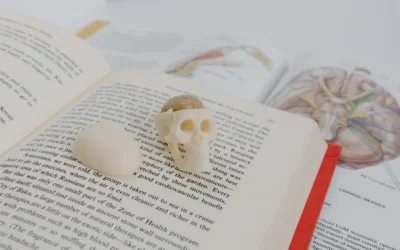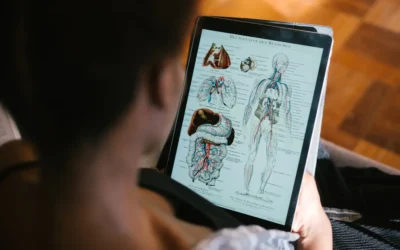All of our Oxford summer courses at the Oxford Scholastica Academy include a Challenge. These Challenges allow you to put everything you’ve learnt over the course of the programme into practice. If you’re taking part in one of our residential Medicine summer school courses, you’ll have the opportunity to participate in our Challenge at the John Radcliffe Hospital (subject to availability).
You’ll meet real patients and perform your own mock consultations. After noting down a summary of the patient’s case and working out your diagnosis, you’ll get the chance to present your findings to the rest of your group.
What Is a Mock Clinic?
A mock clinic is a simulated environment where medical students interact with real or simulated patients in a controlled setting. Designed to emulate the actual clinical experience, it allows students to practice skills such as patient consultation, information extraction, diagnosis and case presentation.
The aim of the mock clinic is to interact with patients in a medical setting and test your skills in extracting information. You’ll also develop your ability to present this information to fellow students, just like a doctor presents a case to the rest of the medical team.

How to Prepare for the Mock Clinic
Throughout your course, you’ll have already been introduced to a number of different diseases, including their causes, symptoms and treatments.
A few days before the challenge, your tutor will tell you which diseases your patients have. From then on, it will be up to you and your fellow students to research the diseases. Your research should include diseases you’ve covered in class and any you may know less about. This step is very important as the research you do will inform the questions you ask the patients. The more you know about the disease, its progression and its risk factors, the more relevant information you’ll be able to retrieve.
Challenge Day
It’s the big day! When you arrive at the hospital, your tutor will briefly outline the approach you should aim for with the patients. After this you’ll be split into small groups of two or three. Each of you will take it in turns to conduct a mock consultation with different patients. During your consultation, make sure you’re noting down information with pen and paper. Laptops are handy in other situations but you don’t want a screen between you and the patient.
The diseases you’ll encounter are mostly chronic (long-lasting). They could be psychiatric (e.g. depression), neurological (e.g. multiple sclerosis) or cardiovascular (e.g. coronary heart disease). Patients will vary not only in their disease but also in their personality. Some patients will be more talkative than others and it’s up to you to decide how you’ll approach the conversation.
There are several questions you’re likely to ask your patient. What are their symptoms? How long have they had them? What previous medical interventions have they had? Do they have a family history of the disease? These are just some of the things you’ll need to find out.
The discussion
Now that you’ve gathered your medical notes and sorted your patients’ data and information, it’s time to present your findings to the rest of the group. After each case is presented, a discussion will follow. Other students will have talked to the same patient as you and will share what they found too. A lot of the time different people will have different ideas about the same patient’s illness. This shows how your approach, tone of conversation and questions can affect the information you get.
To wrap up, your tutor will then help you link the symptoms you’ve seen during the day to the underlying pathology of the disease.
What Do You Gain from a Mock Clinic?
As a doctor, it’s really important to know all of the relevant facts, but knowing how to speak to patients is also vital. A mock clinic gives you the chance to develop this side of your clinical practice.
Patients are more complex than you might think; they’ll rarely give you a textbook picture of the disease they have. A patient may focus on a symptom that does not relate to your diagnosis, simply because it’s what bothers them the most. You sometimes have to steer the conversation back on track if it gets too chatty, or try to engage the patient on a personal level in order for them to loosen up and tell you more about their problems. During the challenge you will, as the name suggests, be challenged.
Many of the world’s top medical universities pay actors to act as simulated patients (SPs) to provide a similar kind of challenge for students, although these are called ‘simulated patient contacts’ (SPCs). During SPCs, medical students conduct a consultation with a mock patient, just like you’ll be doing, in order to work on their communication and professionalism.
In medical practice, you rarely work alone. A team from different medical specialties tackles every case and therefore it’s essential to be able to effectively communicate information to others. The information you give needs to be complete, clear and accurate to avoid complications. By preparing and presenting your case to your fellow students, you’ll get to see and overcome the challenges of conveying patient information.
Our medical challenge is also a really exciting experience for aspiring medics! Trying out exactly what you’re working towards at school is a really enjoyable experience and is just one of the ways our Oxford summer school can be the most memorable summer of your life.

By Oxford Scholastica Academy
The Oxford Scholastica Academy was founded in 2013 by Jamie and Sophie, two former University of Oxford students, who have built a dynamic education company dedicated to empowering young people to chart their path in the world and make it better.




